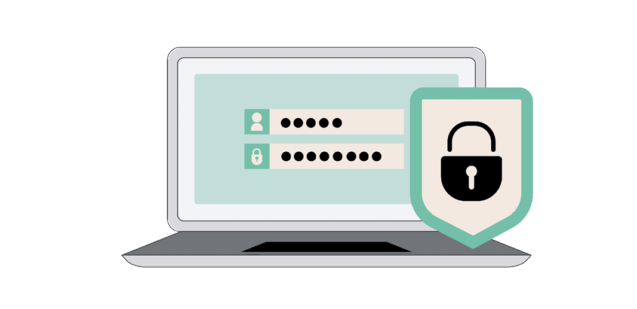
Military deployments are a way of life for around 200,000 of our U.S. service members each year, and serving away from home, sometimes for a long duration of time, can be difficult on many levels, including financially.
So, what are the best practices for money management while deployed? With a solid plan and the right information, you can remain financially stable and even save money during a deployment. Let’s explore how!
Pre-Deployment Money Management
Good plans take time to build, and there is a lot of work to do to get everything ready before you take off. But by taking the extra time here, you can build a solid foundation for your financial future — no matter how long the operation lasts.
1. Set a plan for everything.
The first thing you need to do is get a handle on what details you’ll need to consider while you’re away and who will help you handle situations at home while you’re abroad. Once you’ve done that, consider the following:
- What does your financial landscape look like? What is your deployment income? Will it add to your current revenue? (Likely, yes.) How long will your deployment last? Build a brand-new budget for your deployment time, and be sure to add on a few extra months — just in case.
- What will change from your everyday budget? During deployment, things will probably be much different than your day-to-day life in the States. You may be able to do away with a car insurance policy entirely for a while, and maybe rent as well, depending on the specifics of your situation. But also consider that you may have to add to your budget in other areas. While food and gas expenses may be less than usual, you may have to deal with increased costs for childcare or household help.
- What are the “What ifs”? Since deployments typically range from six months to a year, there are many things that could happen over such a long period. What if the family car breaks down? What if your pet becomes ill while you are away and requires surgery? Considering — and planning for — possible scenarios and outcomes can help you feel confident that you’ve left everything back home in good shape, which will help you keep your mind focused on the task at hand.
2. Do your research.
Active members of the military have certain protections throughout their day-to-day dealings, as laid out under the Servicemembers Civil Relief Act (SCRA). The SCRA is a federal law applying to active duty members (not just upon deployment), covering issues like rentals, health insurance, tax payments and more. To find out more about this law and what it can do to affect your plans for deployment, contact your Armed Forces Legal Assistance Program for guidance.
3. Do the paperwork.
There’s a lot of paperwork to be done during a military deployment, and much of it involves things that you need to take care of personally. Make sure your will is updated, as well as beneficiaries on any life insurance policies you hold. Consider special extended insurance policies to help cover you (and your family) for a worst-case scenario. If you have someone managing your finances while you’re away, you may need to consider a power of attorney for them so there aren’t any drawn-out problems. (As always, make sure you only give legal rights and access to people you trust!) While you’re at it, make sure that you create a guide to all essential account numbers, passwords, and paperwork (like wills and insurance policies). It’s also a good idea to provide access to anything important, like safe keys or bank security boxes.
4. Set up an emergency fund.
Because you never know what could happen or how long it will take to shift back once you return home, having an emergency fund in place will help ease financial stress for the immediate future. Put away at least $1,500 for emergencies. If you can, stock away an additional few months’ worth of savings so you can feel comfortable knowing you’re prepared for anything.
Money Management During Deployment
No matter how many plans you have in place before leaving, the decisions you make while you’re actually away are vital. The good news is that if you can stick to the plan and stay on budget, you can set yourself up for a windfall once you return.
1. Stay on budget.
Because deployment pay is often substantially more than your average military salary, it can be tempting to spend more than you need to — especially with a family at home. But the closer you can stick to your original daily budget in terms of saving, the more money you have available to save.
Just because you’re trying to keep saving during deployment doesn’t mean you can’t also plan to have some fun when it’s all said and done. Making plans for a grand homecoming is one of the best ways to help count the days of deployment down one by one.
2. Invest in a Roth TSP.
When you’re deployed, you may be eligible to contribute extra money toward a Roth Thrift Savings Plan (TSP) — a great way to save money tax-free for whenever you might need it. When you contribute while deployed to a combat zone, you may also qualify for CZTE (Combat Zone Tax Exclusion), which allows the money to go in and grow tax-free, while providing tax-free distributions as well. Additionally, while your TSP Elective Deferral Limit is usually limited to $19,500 each year, you may contribute up to $57,000 while deployed to a combat zone. It’s a great way to put that extra money to work for you, while it’s genuinely tax-free. Please consult your tax advisor for more details.
3. Watch your LES.
While you’re away, your Leave and Earnings Statements will tell you everything that you have coming in and what you’ve earned. These statements allow you to ensure your earnings line up with the original plans and budget you set for deployment. If you keep up with them consistently, you’ll notice if something is miscalculated or misappropriated and be able to address it immediately. And if someone makes an error in your favor? Set that money aside and don’t touch it; it’s only a matter of time before Uncle Sam realizes the mistake and wants it back.
This material is for educational purposes only and is not intended to provide specific advice or recommendations for any individual.



